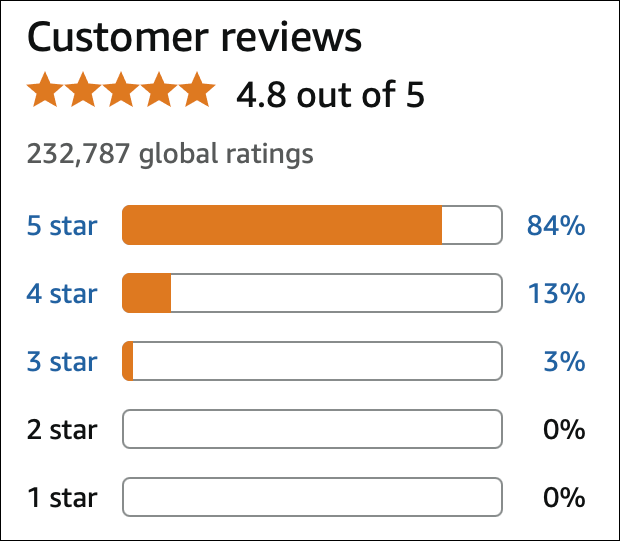If you’ve published a book, you’ll get reviews online from readers. Some may be positive and others negative. Here’s how to approach online book reviews with a healthy mindset.
If you publish a book and sell enough copies, you will get reviews online. Unlike reviews in publications such as newspapers or websites, these reviews are written by individuals who are not trained in the craft of reviewing. Some will be positive, and some will be negative. It’s easy to accept praise, but negative reviews can be harder to swallow. Every great book has plenty of detractors, so don’t let yourself be swayed by negative reviews.
Amazon reviews are a barometer of your book’s reception. The distillation of reviews to a five-star ranking is simplistic but efficient. It’s designed to help purchasers decide whether to buy something, whether it is cat food, a spatula, or a book. While reviews count in this calculation, ratings also count: you can give a star rating to an item without posting a review. And a one-line negative review has as much weight as a 500-word positive review. The system is rigged, in some ways.
The purpose of online reviews
Reviews are primarily for readers, not authors. They are not meant to give feedback to authors, but rather to help potential readers decide whether to purchase a book, based on their taste, preferences, and expectations. You shouldn’t take these reviews personally. They are highly personal opinions of books, similar to what a friend might tell you about a book they just read. When looking at the ratings of items on Amazon or other sites, you can see that most reviews are either positive or negative; the numbers in the middle are usually fairly low. Most people write reviews because they really like or dislike a book; if they think a book is just okay, they’re less likely to take the time to write a review.
Some people write online book reviews to try to hurt authors they don’t like. They may write them as messages to the author, and these reviews can often contain comments that have nothing to do with the book but rather an author’s public persona or political opinions. If you are popular enough to be targeted by this sort of review, you probably don’t read online reviews anymore.
On Amazon and Goodreads, the Amazon-owned site which also has a large number of reviews, when you look at a book you see an aggregate score near the top of the page, and you can drill down and see the number and/or percentage of reviews at each of the five star levels. Very few books have no negative reviews, though I did find one on Amazon UK in late January 2025: Sarah Maas’s A Court of Mist and Fury.

This is surprising, but it is the second book in her series. The first book has a number of one- and two-star reviews, but anyone who didn’t like the first book won’t be reading the second, and won’t review it. While there are some negative reviews for the third book, there are none for the fourth and fifth books in the series. It’s worth noting that on Goodreads, there are some reviews with the lowest star ratings, but 1% or less for each one. If you read some of these reviews, many of them are very long screeds by People Who Have a Lot to Say, which tells more about them than the book they review.
Don’t get involved
For many years, Amazon allowed customers to comment on reviews; Goodreads allows this. Don’t post comments on negative reviews; this can escalate conflicts and potentially harm your reputation. There have been some cases where authors did this, leading to hostility, review bombing, and social media backlash.
Over-attention to online reviews can be bad for an author’s mental health. Some authors see negative reviews as a sign of failure, but not everyone will like your book. Some will love it and others will hate it. Focus on the good reviews and ignore the bad ones. Many authors avoid looking at reviews altogether; this is hard, because we are curious, and we seek approval, but you could ask a friend or colleague to look at reviews for you and filter the bad from the good.
Getting feedback from reviews
As a writer, you already know that giving and receiving feedback is delicate. Most negative reviews are hostile, but you can learn from the ones in the middle, the three-star and four-star reviews. Some of these reviews can give you insights into how readers perceive your characters, dialog, world-building, or plot, and they can help you find your weaknesses and improve them for your next book.
You’ll find that most people who aren’t writing the most negative reviews do have useful things to say. They took the time to write about your book because they enjoyed it and wanted to share their thoughts with other readers. These are readers who are likely to buy your next book, so learn from their comments.
Keep writing
No book is for everyone, so don’t let negative reviews deter you from writing your next book. Either ignore them or, if you do read them, use them as motivation to improve your writing and find more readers. You’ve accomplished something important, whether this is your first published book or your tenth; celebrate this accomplishment and look ahead to your next book. If you can learn from some of the feedback in reviews, then your next book will be better and may find more readers.
Kirk McElhearn is a writer, podcaster, and photographer. He is the author of Take Control of Scrivener, and host of the podcast Write Now with Scrivener.

